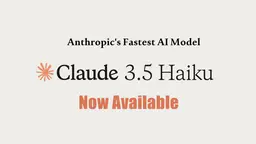Collaborative Language Model Runner Introduction
Petals is an open-source system that enables collaborative inference and fine-tuning of large language models by distributing model parts across multiple users.
View MoreWhat is Collaborative Language Model Runner
Petals is an innovative framework that allows users to run and fine-tune large language models (LLMs) with over 100 billion parameters collaboratively. Developed as part of the BigScience project, Petals aims to democratize access to powerful LLMs like BLOOM-176B by creating a decentralized network where users can contribute their computational resources. This system overcomes the hardware limitations that typically prevent individual researchers from utilizing such massive models, making advanced NLP capabilities more accessible to a wider audience.
How does Collaborative Language Model Runner work?
Petals operates by splitting large language models into smaller parts that are distributed across multiple users' devices. When a user wants to run inference or fine-tune a model, they load only a small portion of it locally and connect with other users hosting the remaining parts. This creates a collaborative pipeline for fast, interactive model execution. The system handles the complexities of forming server chains, maintaining caches, and recovering from failures transparently. Petals is built on PyTorch and Hugging Face Transformers, allowing users to employ various fine-tuning and sampling methods, execute custom paths through the model, and access hidden states - providing API-like convenience with the flexibility of local execution.
Benefits of Collaborative Language Model Runner
Petals offers several key advantages for researchers and developers working with large language models. It enables access to state-of-the-art LLMs without the need for expensive hardware, democratizing AI research. The system provides greater flexibility than typical APIs, allowing users to fine-tune models, access internal states, and implement custom algorithms. Petals supports both inference and training tasks, making it versatile for various NLP applications. By leveraging distributed computing, it achieves faster processing speeds compared to offloading techniques. Additionally, Petals fosters a collaborative ecosystem where users can contribute resources and potentially improve models collectively, advancing the field of natural language processing.
Popular Articles

Claude 3.5 Haiku: Anthropic's Fastest AI Model Now Available
Dec 13, 2024

Uhmegle vs Chatroulette: The Battle of Random Chat Platforms
Dec 13, 2024

12 Days of OpenAI Content Update 2024
Dec 13, 2024

Best AI Tools for Work in 2024: Elevating Presentations, Recruitment, Resumes, Meetings, Coding, App Development, and Web Build
Dec 13, 2024
View More







